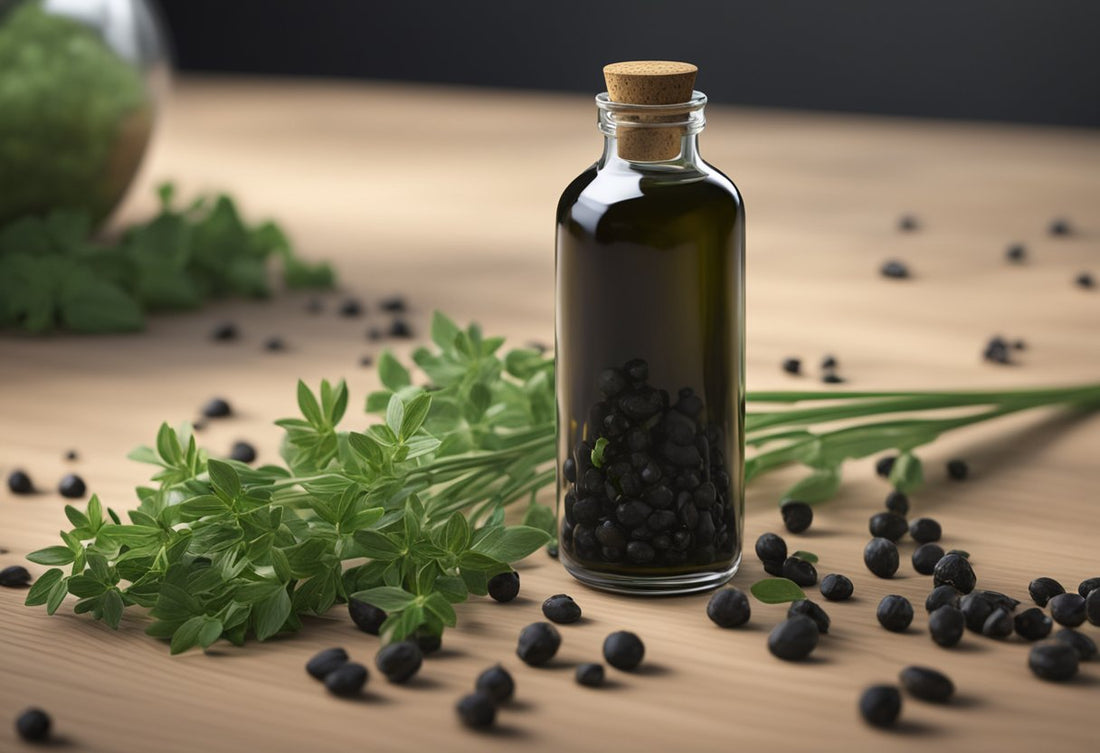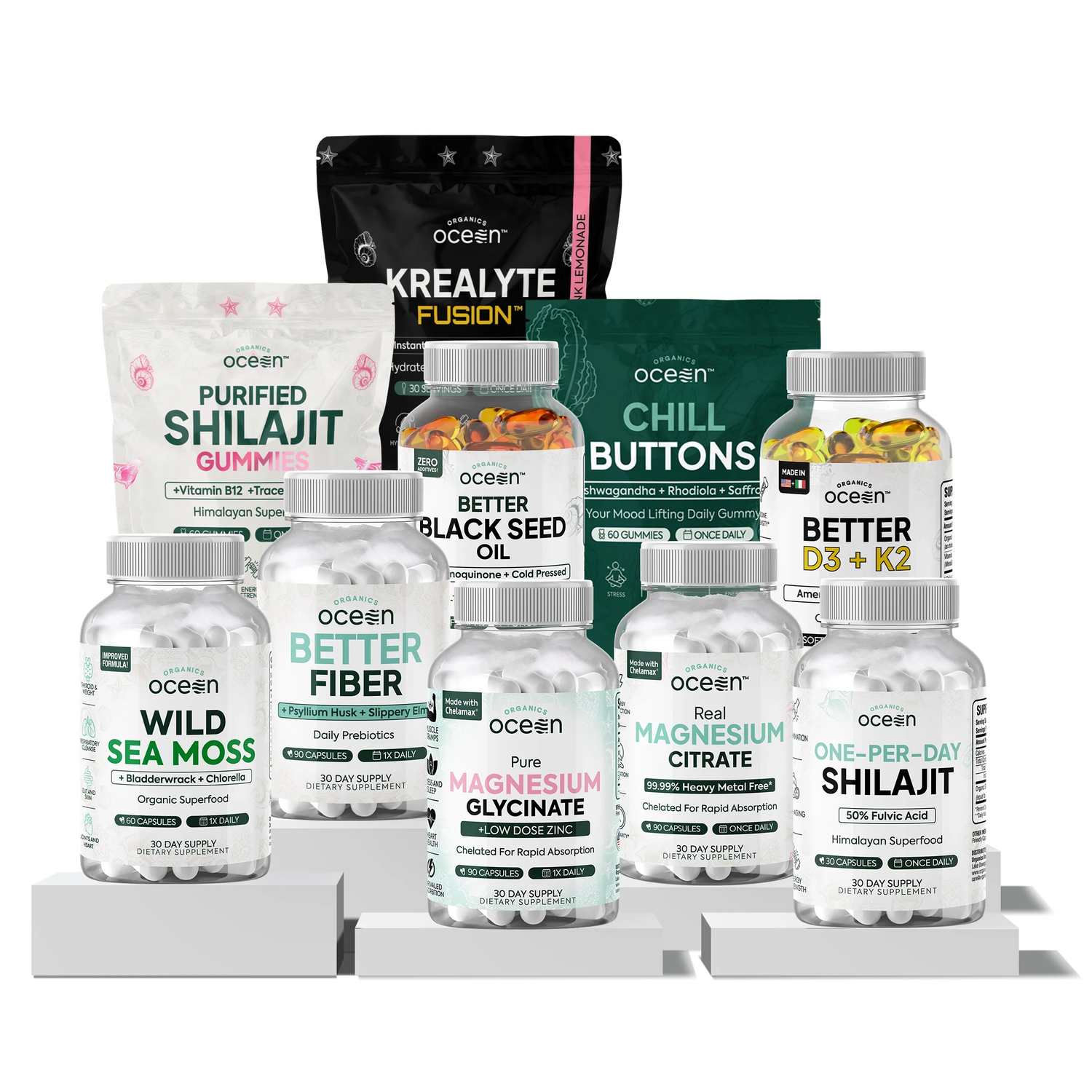
Cold Pressed Black Seed Oil: Unlocking Its Health Benefits and Uses
Share
Cold pressed black seed oil, derived from the seeds of Nigella sativa, has gained popularity for its potential health benefits. You may find that this oil offers powerful antioxidant, anti-inflammatory, and antimicrobial properties, making it a valuable addition to your wellness routine. Whether you’re looking to boost your immune system, promote healthy skin, or manage various health conditions, this oil could be a natural remedy worth exploring.
Many people appreciate cold pressed black seed oil for its purity, as it retains essential nutrients and compounds due to its extraction method. As you consider incorporating this oil into your lifestyle, understanding its uses and benefits can enhance your overall health journey. From culinary uses to topical applications, black seed oil can seamlessly fit into your daily routine.
Curious about how to choose the right product and maximize its benefits? You’re not alone. In this article, we will explore the various aspects of cold pressed black seed oil, providing insights on its applications, effectiveness, and tips for incorporating it into your life.
Origins and Extraction

Understanding the origins and the extraction process of cold-pressed black seed oil reveals its significance and benefits. This section covers its rich history and the unique cold pressing technique that preserves its beneficial properties.
History of Black Seed Oil
Black seed oil, derived from the seeds of the Nigella sativa plant, has been used for over 2,000 years. It originates primarily from the Mediterranean region, the Middle East, and parts of Asia. Ancient Egyptians valued it highly, using it for various purposes, including health and beauty. Notably, it was found in the tomb of Tutankhamun, emphasizing its historical importance.
In traditional medicine, black seed oil has been recognized for its potential therapeutic properties. Historical texts document its use for ailments ranging from digestive issues to respiratory problems. Cultures across the globe, including those in India and the Middle East, have utilized black seed oil for centuries as a natural remedy.
Cold Pressing Technique
Cold pressing is a crucial extraction method that maintains the integrity of black seed oil. This technique involves crushing the seeds and extracting oil without applying heat or chemicals. The result is a pure oil that retains natural flavors and nutrients, ensuring that the beneficial compounds are preserved.
During the cold pressing process, the oil maintains a high concentration of active compounds, such as thymoquinone, which contributes to its health benefits. This method differs from other extraction processes that may use heat, potentially damaging the oil's properties. As a result, cold-pressed black seed oil is preferred for those seeking optimal health benefits and natural healing properties.
Health Benefits

Cold-pressed black seed oil is recognized for its numerous health benefits, primarily attributed to its rich nutrient profile and bioactive compounds. Understanding these benefits can help you make informed decisions about incorporating this oil into your wellness routine.
Thymoquinone Richness
Thymoquinone, the main bioactive compound in black seed oil, is known for its potent antioxidant properties. This compound helps protect your cells from oxidative stress, which can lead to chronic diseases. Studies suggest that thymoquinone may also support metabolic health by helping regulate blood sugar levels.
Furthermore, thymoquinone has been linked to improved heart health. It may help lower total cholesterol and triglyceride levels, contributing to better cardiovascular function. Regular consumption of black seed oil rich in thymoquinone could be beneficial for maintaining your overall health.
Anti-Inflammatory Properties
Cold pressed black seed oil is well-known for its anti-inflammatory properties, making it beneficial for those dealing with chronic inflammation. Inflammation is linked to many health issues, including arthritis, asthma, and diabetes. The oil contains compounds that can help reduce inflammatory markers and alleviate symptoms.
In clinical studies, participants have reported reductions in inflammation-related symptoms after incorporating black seed oil into their diets. This may help you manage conditions characterized by inflammation while also enhancing your overall well-being.
Immune System Support
Supporting your immune system is crucial for maintaining good health, and black seed oil can play a role. The oil has antimicrobial and antiviral properties, which can help protect your body from various infections. Consuming it may enhance your body's defenses against common ailments.
Additionally, black seed oil has been noted to promote the production of immune cells. This can improve your body's response to pathogens. By including black seed oil in your daily regimen, you may strengthen your immune response and help fend off illnesses more effectively.
Usage and Dosage

Understanding the correct usage and dosage of cold pressed black seed oil is essential for maximizing its benefits. Whether taken as a dietary supplement or used topically, it's important to follow guidelines for effective and safe use.
Dietary Supplement
When using black seed oil as a dietary supplement, the typical dosage ranges from 1 to 2 teaspoons (5 to 10 ml) daily. You can consume it directly or mix it with food or beverages to mask its strong flavor.
For specific health conditions, consult with a healthcare provider for tailored dosage advice. Some studies suggest that doses of up to 2.5 grams daily can be safe. Always choose 100% pure, cold-pressed varieties to ensure quality and efficacy.
Consider incorporating it gradually into your routine. Start with a smaller amount and increase as needed, paying attention to how your body reacts.
Topical Application
For topical use, black seed oil can be applied directly to the skin. It is typically used in a diluted form, mixing it with a carrier oil, such as coconut or olive oil. This dilution helps prevent skin irritation while enhancing absorption.
You can apply it to areas of concern like dry skin, or inflammatory conditions. The recommended amount is usually a few drops massaged gently into the skin. For hair care, you may combine it with conditioner or apply it directly to the scalp. For example, you may also open up a liquid gel capsule (520 mg) to use on your skin.
Perform a patch test prior to widespread use. This helps ensure you don't experience an adverse reaction. Applying consistently can promote desired benefits, but adjust the frequency based on your skin's sensitivity.
Safety and Storage

Proper safety measures and storage techniques are crucial for maintaining the quality and effectiveness of cold-pressed black seed oil. This section addresses the oil's shelf life and potential side effects associated with its use.
Shelf Life Considerations
Cold-pressed black seed oil typically has a shelf life of about two years when unopened. The oil's longevity can be influenced by several factors, including its quality and storage conditions.
To maximize shelf life, consider the following:
- Storage Conditions: Keep the oil in a cool, dry place away from heat sources and direct sunlight. Exposure to light and heat can accelerate oxidation, making the oil go rancid more quickly.
- Container Type: Dark glass bottles offer better protection from light than plastic containers. Opt for oils packaged in opaque, dark glass for longer-lasting freshness.
Once opened, use the oil within six months for optimal benefits. Regularly check for changes in smell or taste, which can indicate rancidity.
Potential Side Effects
While cold-pressed black seed oil is generally safe for most people, you should be aware of potential side effects. Some individuals may experience:
- Allergic Reactions: Skin irritation or allergic reactions can occur, particularly if you have sensitivities to the seeds or oil.
- Digestive Issues: Some users report mild gastrointestinal discomfort, including upset stomach or nausea, especially when consuming high doses.
Always perform a patch test before applying the oil topically and start with small doses if you are ingesting it. If you experience persistent side effects, consult a healthcare professional.
Frequently Asked Questions
Cold-pressed black seed oil offers various health benefits and can be integrated into your routine effectively. Understanding its uses, potential side effects, and criteria for selecting quality oil can enhance your experience.
What are the benefits of taking cold-pressed black seed oil?
Cold-pressed black seed oil is known for its numerous health benefits. It may help lower blood pressure, support heart health, and assist in managing cholesterol levels. Additionally, the oil is recognized for its anti-inflammatory and antioxidant properties.
How should one use cold-pressed black seed oil for optimal results?
For optimal results, you can take cold-pressed black seed oil orally. A typical dosage ranges from one to two teaspoons per day. It can also be applied topically to improve skin health, but a patch test is advised to avoid reactions.
What are the potential side effects of taking cold-pressed black seed oil?
Some individuals may experience mild side effects, such as upset stomach, nausea, or diarrhea. Allergic reactions are also possible, especially in those sensitive to plants in the Ranunculaceae family. It's advisable to start with a small dose to assess your tolerance.
Are there any particular interactions or substances to avoid when using black seed oil?
Black seed oil may interact with certain medications, particularly those that affect blood clotting or blood sugar levels. It's crucial to consult with a healthcare provider if you are taking medications for these conditions to avoid contraindications.
How does cold-pressed black seed oil aid in weight loss?
Cold-pressed black seed oil may aid in weight loss by enhancing metabolism and reducing appetite. Some studies suggest its components can improve insulin sensitivity, contributing to better weight management when combined with a balanced diet and exercise.
What criteria should be considered when looking for the best quality cold-pressed black seed oil?
When searching for high-quality cold-pressed black seed oil, consider factors such as purity, extraction method, and thymoquinone content. Look for oil that is organically sourced and cold-pressed to ensure it retains maximum nutrients and benefits.
